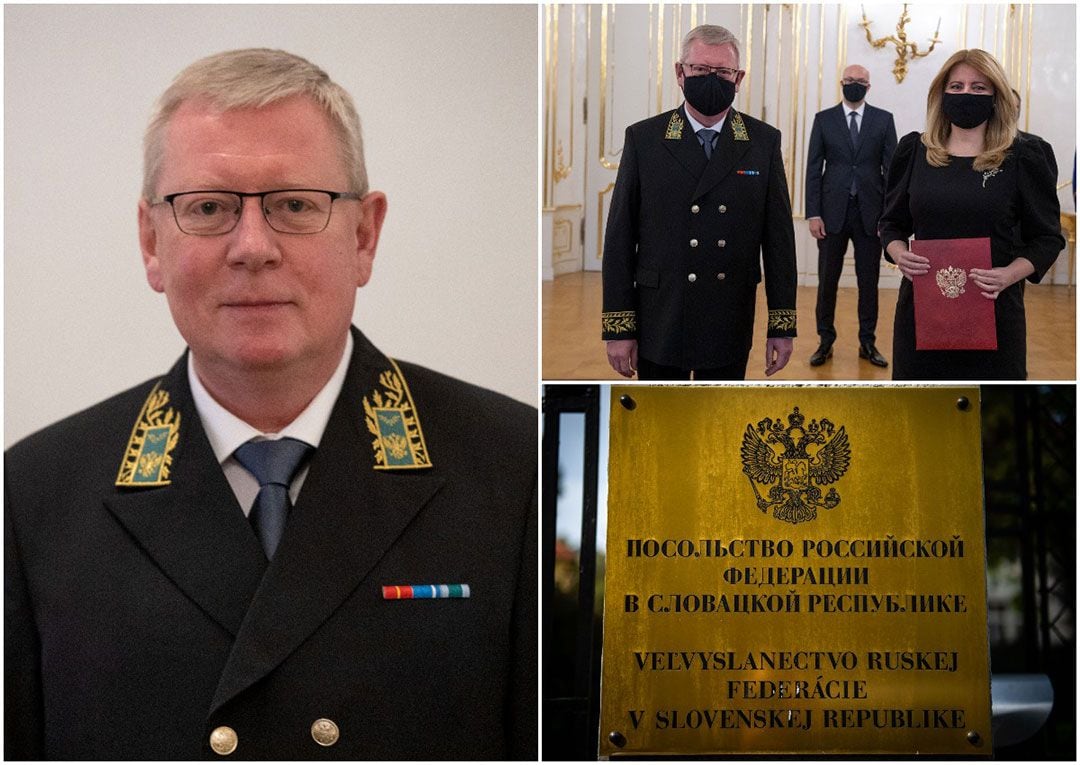
Poland decided to expel “45 Russian spies posing as diplomats,” Polish Interior Minister Mariusz Kaminski announced Wednesday in a new blow to Vladimir Putin's intelligence system.
“In a coherent and decisive manner, we dismantled the network of Russian special services in our country,” the Polish minister said on Twitter.
The Russian ambassador to Poland, Sergey Andreev, confirmed these expulsions to the press and said that people will leave the country within five days.
The official stated that the allegations of espionage, presented in diplomatic language as “activities not compatible with its diplomatic status”, were “groundless” and announced that Russia reserved the right to take reciprocal action. Relations between the two countries are maintained, said the diplomat. “Embassies remain, ambassadors remain,” he reiterated.
The Polish authorities also reported on Wednesday the detention in Warsaw of an employee of the Civil Registry of that city, accused of spying for Russia. The man, whose identity has not been disclosed, “provided news and information that could harm the Republic of Poland”, according to an official statement, and will remain in pre-trial detention for at least three months at the request of the prosecutor.
In an interview broadcast on Polish television this Wednesday, government spokesman Michal Dworczyk stated that “the activities of Russian spies are increasingly intense” on Polish territory, adding that “sometimes we don't realize how important seemingly trivial information is to Intelligence, such as, for example, which is recorded in local institutions”.
“In the Registry Office there is a lot of information about people who changed their names after acquiring Polish citizenship or green cards. And spies can use this,” said Dworczyk.
On March 1, the Russian ambassador to Poland referred to the “deterioration” of relations between the two countries and stated that “they have never been simple”, but that after the “hysteria” that he claims has unleashed in Poland due to the invasion of Ukraine, they have “gotten even worse”.

Espionage diplomacy, a Russian weapon
This is not the first incident involving Russian spies among diplomatic representatives. Putin's networks around the world have been in place for a long time. They present themselves as cultural or commercial attachés and weave contacts at all levels. However, the mission of each of them in the countries to which they are sent is only one: to collect information and to infiltrate high levels of government.
Last Friday, the three Baltic countries, Latvia, Lithuania and Estonia, expelled ten diplomats in an apparently coordinated action to express their solidarity with Ukraine, invaded by Russia on the 24th.
The similar wording of the three announcements suggests that the expelled Russians worked for the Moscow intelligence services and that these services were complicit in planning the invasion of Ukraine.
And days ago, the Slovak Foreign Ministry reported that the Government decided to expel three Russian diplomats accused of spying for the Vladimir Putin and has given them 72 hours to leave the country. In addition, security forces have arrested several individuals working for the Ministry of Defence and the Slovak Information Service (SIS) for their alleged involvement in the case.
Although their identities were not disclosed, it is known that among those arrested are an Army colonel, a member of the SIS, and a person associated with the Main News website. According to the newspaper Dennik N, all of them had been bribed by a Russian diplomat. The Slovak Government indicated that the diplomats in question have violated the Vienna Convention on Diplomatic Relations.
(With information from AFP and EFE)
KEEP READING:
Últimas Noticias
Debanhi Escobar: they secured the motel where she was found lifeless in a cistern

The oldest person in the world died at the age of 119

Macabre find in CDMX: they left a body bagged and tied in a taxi
The eagles of America will face Manchester City in a duel of legends. Here are the details

Why is it good to bring dogs out to know the world when they are puppies



